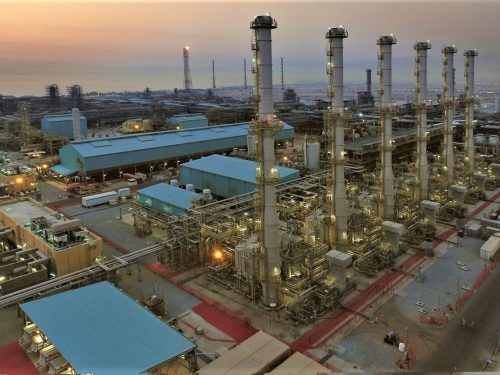Kuwait intends to reduce its crude oil exports to Asia, starting next April, in conjunction with its plans to expand the production of oil derivatives.
The Kuwait Petroleum Corporation asked some Asian refineries to obtain a lower share of oil under their annual deals, according to what was seen by the specialized energy platform.
The OPEC member plans to start large-scale operations at the Al-Zour refinery, the second phase of which began operating on March 7, raising its production capacity to 410,000 barrels per day.
The decline in Kuwaiti oil exports may lead to a scarcity of supplies from the Middle East to Asia and support prices, especially with the expectation of a recovery in demand from China, the largest importer of crude in the world, according to Reuters.
Exports to India and Japan
KPC has told some buyers that supply of Kuwait crude may be reduced under new annual contracts starting in April 2023, sources at two Indian refineries and a Japanese refiner said.
The Indian Oil Corporation (India’s largest refiner) will cut its annual purchases of Kuwaiti oil by 20%, or 20,000 barrels per day, starting in April.
An Indian refining source said Kuwait had also approached his company and asked it to get less oil under a contract for the next fiscal year starting in April.
The Japanese refining source did not disclose the volumes KPC seeks to cut, but added that KPC has also contacted other refineries in Japan to negotiate supply cuts.
The Indian Oil Company seeks to compensate for the lack of oil from Kuwait, by increasing the volume of its imports from the Iraqi Oil Marketing Company “SOMO” by 20 thousand barrels per day.
He said that the Indian company’s imports will increase to 210,000 barrels per day of Iraqi oil in 2023, compared to 190,000 barrels per day in 2022.
Annual crude sales contracts between Iraq, the largest supplier of crude to India, and most Indian refineries begin in January.
Al-Zour Refinery exports
Exports of low sulfur fuel oil from the Al-Zour refinery are expected to be higher than the previous estimate of 5.5 million tons to 6 million tons annually.
The refinery will produce between 11 and 12 million tons annually of low sulfur fuel oil when operating at full capacity before the end of this year, of which 7 million tons will be exported annually.
Salah Al-Awadi, senior market analyst at Al-Zour Company, said during his participation in the 13th Fujairah International Fuel Supply Forum (Fogcon 2023): “Based on our models and calculations of domestic demand for electricity generation, we expect that about 7 million tons of low-sulfur fuel oil will be available for export to the market. fuel”.
Kuwait produces approximately 14 million tons annually of low sulfur fuel oil, with demand from power and water utilities changing in the summer and winter months.
Market participants expect that the rise in low sulfur fuel oil production will lead to saturation of fuel markets in offshore fuel centers east of Suez, altering the flow of fuel oil and putting pressure on premiums.
Al-Awadi said that Al-Zour will produce at full capacity 3 million tons per year of naphtha, about 4.5 million tons per year of kerosene, and 7.5 million tons per year of low-sulfur diesel, Argus Media reported.

Al-Zour refinery operating stages
KPC started operations in a second phase of 205,000 barrels per day earlier this month, after operating the first phase in November.
The Al-Zour refinery, which has a capacity of 615,000 barrels per day, contains three units of equal capacity, and the third crude distillation unit is expected to be operational in Al-Zour by next August.
Once fully operational, the refinery will expand Kuwait’s refining capacity to 1.415 million bpd from around 800,000 bpd currently.
The Al-Zour refinery is designed to process mostly heavy crude, including from the Lower Fars project in northeastern Kuwait.
Several reports predicted a decline in Kuwait’s exports of crude oil in 2023 to 1.26 million barrels per day, compared to an average of 1.92 million barrels per day in 2022 until the end of November, according to “Mais” magazine.
The amount of expected exports during the current year is less than half of Kuwait’s share set by the OPEC + alliance, according to the production cut plan, which is 2.68 million barrels per day.
Kuwait achieved a modest figure for distillate exports (refined oil) in 2022, amounting to 695,000 barrels per day, according to data from the “Judy” data initiative until the end of last October.
Kuwait is counting on the Al-Zour refinery to increase its exports of oil derivatives, amid expectations that it will record a large leap during 2023, after operating the second phase, and proceeding to complete the project in full before the end of this year.
related topics..
Also read..

Leave a Reply